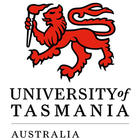Diploma of Ageing Studies and Services
Diploma of Ageing Studies and Services
The Diploma of Ageing Studies and Services is the only undergraduate diploma within Australia focusing on ageing studies and services and addresses the need for holistic knowledge of the ageing process. The Diploma will cover contemporary issues relating to care and services for older people. You will learn about the…
Categories
COURSE DESCRIPTION
The Diploma of Ageing Studies and Services is the only undergraduate diploma within Australia focusing on ageing studies and services and addresses the need for holistic knowledge of the ageing process. The Diploma will cover contemporary issues relating to care and services for older people. You will learn about the many social and health challenges that are associated with ageing.
This course, developed and delivered by the Wicking Dementia Research and Education Centre, is available through the College of Health and Medicine.
The Diploma of Ageing Studies and Services is a fully online, eight-unit course which examines the social and biological aspects of ageing; chronicity and multimorbidity; age-related discrimination and prejudice; public health understandings; and administrative processes related to policy and aged care. This Diploma is suitable for those wanting to or who are working with older adults in aged care, health care or related sectors, such as community-based roles and services. The course will bring together the social and health-based perspectives of ageing.
Areas of focus include the idea of ‘care navigation’, policy, safety and health promotion. Content also looks at the rising impact of dementia.
Career outcomes
As a graduate of the Diploma of Ageing Studies and Services, you will be equipped with contemporary knowledge to assist older adults and their families in navigating the complexity of the aged care system and the trajectory of the needs of older adults across complex health and social systems. Numerous current and emerging careers are important in supporting an ageing population and you could work in a variety of roles including:
- Advocacy or advisor in ageing or aged care
- Aged care assessor
- Aged care educator or trainer
- Care advisor
- Care services
- Community care
- Community development and support
- Community educator or trainer
- Healthy ageing advisor
- Policy development
- Positive ageing support officer
- Residential aged care
- Services manager and support
- Support planner
- Support worker
Learning Outcomes
1 Examine social constructs, and experiences of ageing from global, national, and indigenous perspectives.
2 Explain the impact of major diseases and conditions associated with ageing and dementia on lived experience and complexity of care needs.
3 Propose strategies to assist older people to navigate and access services to meet health and social care needs.
4 Analyse inclusive frameworks and approaches that support the needs, interests and wellbeing of older people.
REQUIREMENTS
Admission to undergraduate courses at the University of Tasmania requires the completion of qualifications equivalent to a 12th year of education in Australia..
You can also meet the General Entry Requirement for this course with the following qualifications or prior studies:
Completion of an equivalent AQF Certificate III or above
Complete or incomplete (minimum 25 credit points) of previous tertiary study at Bachelor level or higher
Course Specific Requirements
Students must have access to a computer, reliable internet connection, webcam, headset and microphone.
English Language Requirements
This degree requires an IELTS (Academic) of 6.5, with no individual band less than 6.5, or a PTE Academic score of 58, with no score lower than 58 or equivalent.
EDUCATIONAL INSTITUTION
The University of Tasmania was officially founded on 1st January 1890 and is located at Sandy Bay, Tasmania. In addition to the main campus at Sandy Bay, it also operates out of the Newnham Campus and the Cradle Coast Campus. The most popular courses offered are the environmental studies that include wilderness management, marine sciences and indigenous studies in Tasmanian literature. Other unconventional courses include agriculture development, studies on the community and population and ocean study programs. The university also comprises of a Music Conservatorium, Art school and a School of Clinical studies.




